Category:
Related Health Topics
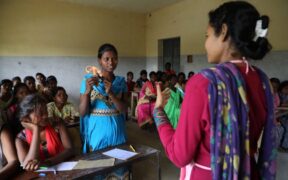
On November 16th, 2023 Knowledge SUCCESS, in collaboration with the Contraceptive-Induced Menstrual Changes Community of Practice, hosted a webinar that highlighted the linkages between the fields of family planning and menstrual health and took participants through recently published programmatic guidelines for family planning-menstrual health integration.

Regulatory requirements for product registration can be overwhelming. They’re complex, vary by country, and frequently change. We know they’re important (safe medicines, yes!), but what does it actually take to get a product from the manufacturing plant onto the shelves in your local pharmacy? Let’s take a look together.
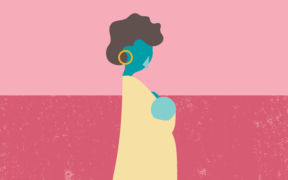
Earlier this year, Communities, Alliances & Networks (CAAN) and The World Health Organization’s (WHO) IBP Network partnered on a series of seven webinars on advancing the SRHR of Indigenous women living with HIV. Each webinar featured rich discussions, highlighting national plans and the status of Indigenous women living with HIV and other sexually transmitted infections in each country.
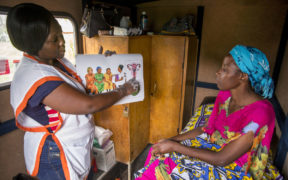
Recently, Brittany Goetsch, a Program Officer on the Knowledge SUCCESS project, chatted with TogetHER for Health’s Executive Director, Dr. Heather White, and Population Services International’s (PSI’s) Global Medical Director, Dr. Eva Lathrop, on the integration of cervical cancer into broader SRH programming and what cervical cancer can teach us about a life course approach to SRH. In addition, while in Mozambique recently, Dr. Eva Lathrop spoke with the nurse coordinator for PSI’s PEER Project, Guilhermina Tivir.
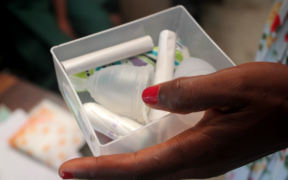
Managing Menstruation: Know Your Options is a unique client-facing tool. It provides information on the full range of self-care options for managing menstruation. Developed by Rising Outcomes and the Reproductive Health Supplies Coalition, the tool is available in English, French, and Spanish.
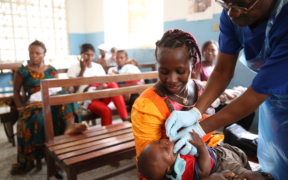
The INSPiRE project is introducing integrated performance indicators into policy and practice in francophone West Africa.

This blog provides an overview of the mental health effects of care work and GBV service provision on health providers, approaches to support self-care and improved health systems, and policy recommendations for the future.
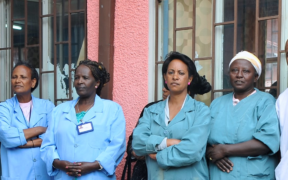
Key populations, including female sex workers, face barriers to health care access that include stigma, criminalization, and gender-based violence. In many cases, these barriers can be mitigated by peer educators, who bring valuable insight and may engender trust with clients.

With so many useful tools, resources, or newsworthy items to choose from, maybe you’d like to know more about what’s available? We’re testing a new product called And Another Thing, a list of more resource choices that are useful, relevant, and timely to anyone working in FP/RH.
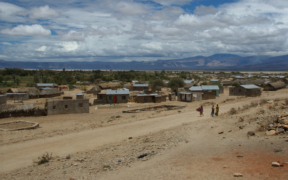
The Uzazi Uzima Project's work to build the capacity of healthcare workers to provide high-quality services has improved access to reproductive, maternal, newborn, child, and adolescent health services—including family planning—in northern Tanzania's Simiyu Region.
Listen to “Inside the FP Story”
Grab a cup of coffee or tea and listen in on honest conversations with family planning program experts around the world as they share what has worked in their settings — and what to avoid — in our podcast series, Inside the FP Story.
Click on the image above to visit the podcast page or on your preferred provider below to listen to Inside the FP Story.
Stay Updated
with the latest trending news
About
Knowledge SUCCESS is a five-year global project led by a consortium of partners and funded by USAID’s Office of Population and Reproductive Health to support learning, and create opportunities for collaboration and knowledge exchange, within the family planning and reproductive health community.
Contact
Johns Hopkins Center for Communication Programs
111 Market Place, Suite 310
Baltimore, MD 21202 USA
Contact Us
This website is made possible by the support of the American People through the United States Agency for International Development (USAID) under the Knowledge SUCCESS (Strengthening Use, Capacity, Collaboration, Exchange, Synthesis, and Sharing) Project. Knowledge SUCCESS is supported by USAID’s Bureau for Global Health, Office of Population and Reproductive Health and led by the Johns Hopkins Center for Communication Programs (CCP) in partnership with Amref Health Africa, The Busara Center for Behavioral Economics (Busara), and FHI 360. The contents of this website are the sole responsibility of CCP. The information provided on this website does not necessarily reflect the views of USAID, the United States Government, or the Johns Hopkins University. Read our full Security, Privacy, and Copyright Policies.













